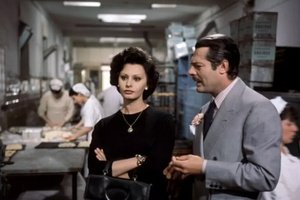Thanks to a collaboration with the Melbourne Holocaust Museum, on Friday July 15, 2022, Mazenod College's VCE Italian class, along with teacher Denis Passalent, had the rare opportunity to meet Guta Goldstein via Zoom.
Guta is a 92-year-old Holocaust survivor and one of the last living witnesses of the tragedy. In this interdisciplinary foray linking history and Italian as part of VCE Unit 4 activities, Guta shared part of her migration story, which interweaves the geography and languages of at least four countries: Poland, Germany, Italy and Australia.
In 1939, at the age of nine, she began the most difficult period of her life when she and her family were first segregated in the Lodz ghetto, where people were starved to death. Later, she was interned in the Auschwitz concentration camp and then in Bergen-Belsen.
The class was silent, entranced by her words, as she recounted these chapters of her personal life.
At the end of the war, in 1945, she was left without a home, without family, without friends, without a country - robbed of a childhood.
Guta then travelled to Florence, where she lived for four and a half years.
In one of the pages of her autobiographical book, Towards the Future. A Memoir, which we analysed in class, the author describes the people of Florence as kind and always ready to help with advice and a smile.
Guta's story reminded us of the film Life is Beautiful which we watched in Year 9, not only because it is set during the Second World War, but also because it is a story of hope born out of tragedy.
Then began a very spontaneous conversation between us and Guta, in which we were able to freely ask her any questions.
Some questions were even in Italian!

Guta Goldstein speaking to Mazenod College students via zoom. (Photo provided)
She told us that in 1949 she came to Australia and rebuilt her life here.
She reiterated that it is a duty for her to share her story; she owes it to the six million Jews who were killed.
Despite everything, she did not lose her faith in God and encouraged us not to discriminate against or exclude people.
The experience made us reflect on this chapter of 20th century history, on the resilience one can maintain despite the injustices that exist in the world.
We asked her if she felt welcome in Australia, and her answer made us proud to live in this country.
She said that although she has no family or friends here, she feels content and very much accepted. For her, this is the best country in the world!
In conclusion, it was a valuable opportunity for discussion, and also because these direct witnesses of the Holocaust may no longer be here in a few years’ time.
We also highly recommend that other VCE classes in Australia seek out an experience similar to our meeting with Guta.











